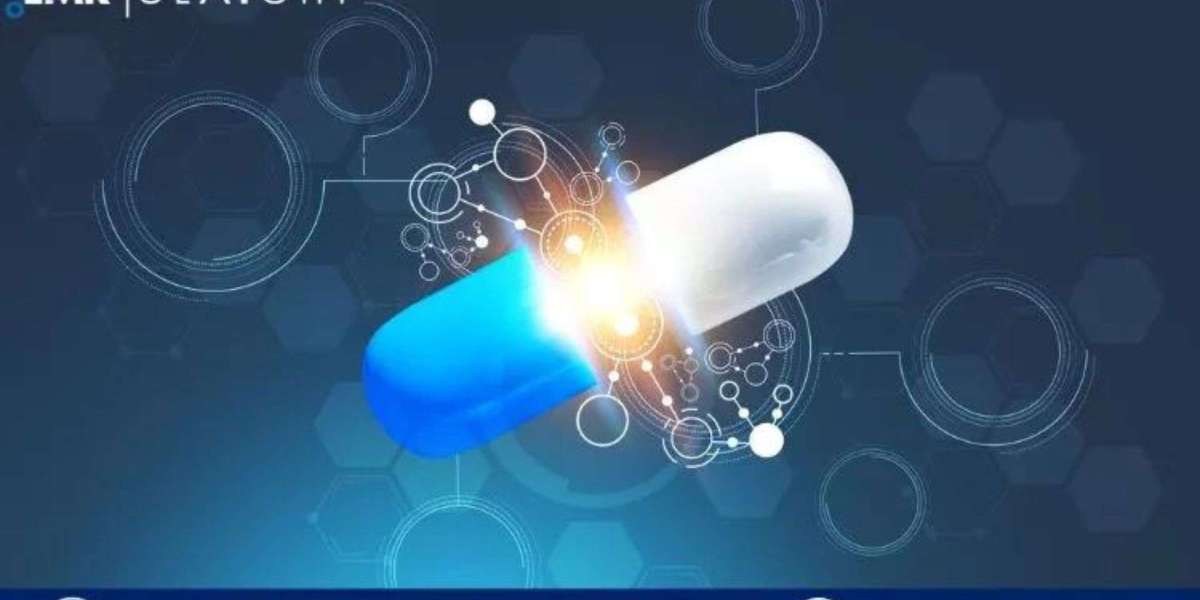The India biosimilar market size was valued at INR 2.20 billion in 2024, driven by the rising prevalence of chronic diseases across the region. The market is expected to grow at a CAGR of 25.20% during the forecast period of 2025-2034, with the values likely to rise from INR 2.8 billion in 2025 to INR 16.6 billion by 2034. The dynamics, trends, segmentation, growth potential, and the role of key players in the biosimilar industry in India.
Get a Free Sample Report with a Table of Contents: https://www.expertmarketresearch.com/reports/india-biosimilar-market/requestsample
India Biosimilar Market Overview
Biosimilars are biologic medical products that are highly similar to an already approved reference biologic in terms of safety, efficacy, and quality. These products are designed to provide cost-effective alternatives to branded biologics, especially for treating chronic diseases such as cancer, diabetes, rheumatoid arthritis, and autoimmune disorders.
India is emerging as a global hub for biosimilars due to its robust pharmaceutical manufacturing capabilities, skilled workforce, and favourable regulatory framework. The government’s initiatives to enhance healthcare accessibility and affordability have further fueled the growth of the biosimilar market in the country.
India Biosimilar Market Dynamics
Drivers
Rising Prevalence of Chronic Diseases: An increasing number of patients suffering from cancer, diabetes, and autoimmune diseases is driving the demand for biosimilars.
Favourable Regulatory Framework: India’s regulatory environment promotes the development and approval of biosimilars, encouraging market growth.
Cost-Effectiveness: Biosimilars offer a more affordable alternative to expensive biologic therapies, making them accessible to a larger population.
Expanding Healthcare Infrastructure: Improved healthcare facilities and rising awareness about biologic therapies are boosting biosimilar adoption.
Growing Investment in R&D: Indian pharmaceutical companies are investing significantly in biosimilar research and development, enhancing product pipelines.
Read Full Report with Table of Contents: https://www.expertmarketresearch.com/reports/india-biosimilar-market
Restraints
Complex Manufacturing Process: The production of biosimilars is complex and requires significant technical expertise and investment.
Regulatory Challenges: Adhering to stringent quality and safety standards can delay product approvals.
Market Competition: Intense competition from branded biologics and other biosimilar manufacturers poses challenges.
Opportunities
Expansion into Emerging Markets: Indian biosimilar companies can tap into global markets with unmet demand for affordable biologics.
Collaboration and Partnerships: Strategic alliances between domestic and international players can accelerate market growth.
Focus on Oncology and Autoimmune Therapies: These segments offer significant growth potential due to high disease prevalence and treatment costs.
External India Biosimilar Market Trends
Increasing Export Opportunities: Indian biosimilar manufacturers are expanding their footprint in regulated markets like the US and Europe.
Focus on Biosimilar Monoclonal Antibodies: Monoclonal antibodies for oncology and autoimmune disorders are gaining traction.
Adoption of Digital Technologies: Companies are leveraging digital platforms for patient education and market outreach.
Rising Demand for Personalised Medicine: Biosimilars are being integrated into personalised treatment regimens for better patient outcomes.
Government Support: Initiatives like ‘Make in India’ and policies to promote local manufacturing are boosting the biosimilar sector.
India Biosimilar Market Segmentation
By Product Type:
Monoclonal Antibodies (mAbs):
Widely used in oncology and autoimmune diseases.
Insulin Biosimilars:
Gaining traction due to the high prevalence of diabetes in India.
Hematopoietic Agents:
Includes erythropoietin and granulocyte colony-stimulating factors (G-CSFs).
Others:
Includes biosimilars for vaccines, hormones, and growth factors.
By Application:
Oncology:
The largest segment, driven by the high incidence of cancer and the need for cost-effective treatments.
Autoimmune Diseases:
Includes treatments for rheumatoid arthritis, psoriasis, and Crohn’s disease.
Diabetes:
Insulin biosimilars are a key focus area for managing diabetes.
Other Chronic Diseases:
Includes cardiovascular and respiratory disorders.
By Distribution Channel:
Hospitals:
The largest channel due to the administration of biosimilars in controlled environments.
Retail Pharmacies:
Increasingly popular for outpatient treatments and follow-up therapies.
Online Pharmacies:
Emerging as a convenient and cost-effective distribution channel.
India Biosimilar Market Growth
The India biosimilar market is poised for exponential growth, driven by increasing demand for affordable biologics, advancements in manufacturing technology, and expanding product pipelines. The oncology and autoimmune disease segments are expected to witness the fastest growth, supported by rising disease prevalence and the availability of biosimilar monoclonal antibodies. Additionally, the government’s focus on healthcare affordability and accessibility is expected to create a conducive environment for market expansion.
Recent Developments in the India Biosimilar Market
Pfizer Inc.:
Expanded its biosimilar portfolio with new launches targeting oncology and autoimmune diseases.
Eli Lilly and Company:
Partnered with Indian manufacturers to enhance its biosimilar presence in the region.
Celltrion Healthcare:
Strengthened its distribution network in India to improve biosimilar accessibility.
India Biosimilar Market Scope
The scope of the India biosimilar market extends across various therapeutic areas, including oncology, diabetes, and autoimmune diseases. The increasing focus on innovation, cost-efficiency, and patient-centric solutions is broadening the market’s potential. Furthermore, government initiatives aimed at reducing healthcare costs and improving access to advanced therapies are expected to drive market growth over the forecast period.
India Biosimilar Market Analysis
Regional Insights
North India:
The largest market share due to better healthcare infrastructure and awareness.
South India:
Significant growth driven by a strong pharmaceutical manufacturing base.
West India:
Increasing adoption of biosimilars in metropolitan cities like Mumbai and Pune.
East India:
Gradual growth expected with improving healthcare access and awareness.
COVID-19 Impact Analysis
The COVID-19 pandemic highlighted the importance of biosimilars in ensuring affordable healthcare. While the initial phase of the pandemic disrupted supply chains and delayed clinical trials, the demand for biosimilars surged as hospitals focused on cost-effective treatments for chronic diseases. Post-pandemic, the market is expected to witness sustained growth, driven by increased awareness of biosimilars and advancements in manufacturing technology.
Key Players
Pfizer Inc.:
A global leader in biosimilar development, Pfizer focuses on oncology and autoimmune disease treatments.
Eli Lilly and Company:
Known for its innovative insulin biosimilars and collaborations with Indian manufacturers.
Celltrion Healthcare:
A pioneer in biosimilar monoclonal antibodies, Celltrion is expanding its footprint in India.
FAQs
1. What are biosimilars?
Biosimilars are biologic medical products highly similar to an already approved reference biologic in terms of safety, efficacy, and quality.
2. Why is the India biosimilar market growing?
The market is growing due to the rising prevalence of chronic diseases, favourable regulations, and the affordability of biosimilars.
3. Which therapeutic areas dominate the market?
Oncology, autoimmune diseases, and diabetes are the largest segments in the biosimilar market.
4. Who are the key players in the India biosimilar market?
Pfizer Inc., Eli Lilly and Company, and Celltrion Healthcare are prominent players in the market.
5. How did COVID-19 impact the biosimilar market in India?
The pandemic increased demand for cost-effective treatments, boosting the adoption of biosimilars despite initial supply chain disruptions.






